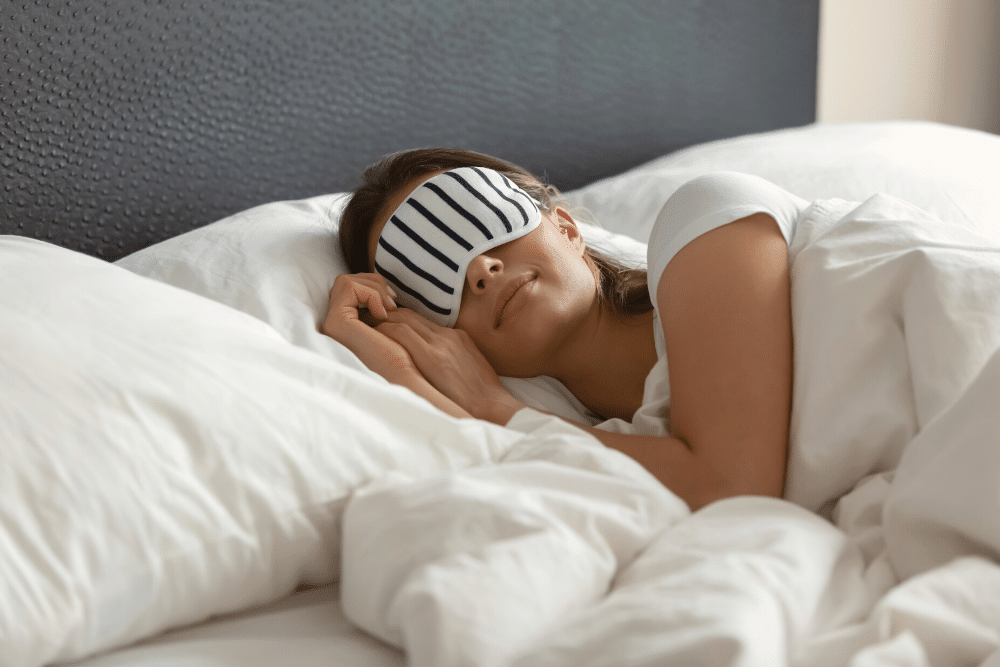
Sleep works wonders for your health. It keeps you from getting chronic diseases, boosts your mental health, and helps prevent obesity. So if you don’t sleep well at night, what can you do to catch more zzz’s and reap the benefits of a good night’s sleep?
It turns out, many of us have bad habits that may prevent us from sleeping well each night. Avoid these common activities before bed to help you rest easy.
Watching TV in Bed
You probably wouldn’t sleep well with the lights on, right? Well, trying to fall asleep after staring at your phone or the television for hours can have a similar effect. Your brain is not only stimulated by what you’re watching, which can keep you from getting good rest, but it’s also confused by the light. Light tells your brain that it’s time to wake up, so you’ll have a more difficult time falling asleep if you’ve been watching TV or using your laptop or phone before bed.
Instead, implement a new wind-down routine that will help you fall asleep fast. Try reading or journaling about the day before you get into bed. Make a cup of caffeine-free tea or take a warm bath to signal to your brain that it’s time to sleep.
Exercising in the Evening
Regular exercise can help you sleep better, but fitting it in too close to bedtime can make it hard to fall asleep. Try to avoid exercising at least 3 hours before bed unless you’re doing light intensity exercise, like a relaxing yoga flow or a stretching routine.
If you can, exercise in the morning to help you feel energized all day long while preserving the ability to fall asleep fast at night.
Midnight Snacks
Evening TV and snacks just go together—but evening TV, snacks, and a good night of sleep don’t! If you want to help yourself fall asleep, skip the midnight snacks—particularly snacks containing chocolate, since chocolate has a small amount of caffeine. Drinks containing alcohol can also hinder a good night’s sleep, so try to avoid these after dinner.
If you’re really craving an evening snack, try a high-carb option like toast or crackers, since these can release serotonin and help you fall asleep. Warm milk or tea may not help you fall asleep, but they can help you relax, making sleep come easier.
Afternoon Cups of Coffee
For many people, an afternoon cup of coffee is an essential pick me up. However, caffeine from coffee, soda, or energy drinks takes many hours to metabolize—in fact, 4–6 hours after drinking your afternoon cup of joe, you’ve still got half its caffeine in your system!
If you think caffeine might be keeping you up at night, experiment with how much you drink and when you drink it. For some people particularly sensitive to caffeine, it might be worth giving up entirely to ensure your nighttime sleep isn’t interrupted.
Working At Night
If you regularly leave work with a ton on your to-do list, you might be in the habit of checking your email or knocking a few things off the list before bed. Unfortunately, this habit won’t help you sleep, since stimulating your brain with work can increase stress before bed. You’ll know this is a problem for you if you commonly find yourself struggling with racing thoughts as you try to fall asleep.
Instead, log off from work at least a few hours before bed each night. If you find yourself still struggling with jumbled thoughts each night, consider journaling or meditating before bed to help calm your mind.
Getting a full night’s sleep is one of the best things you can do to preserve your health. Build a routine of sleep-producing habits to enjoy a good night’s sleep every night.



